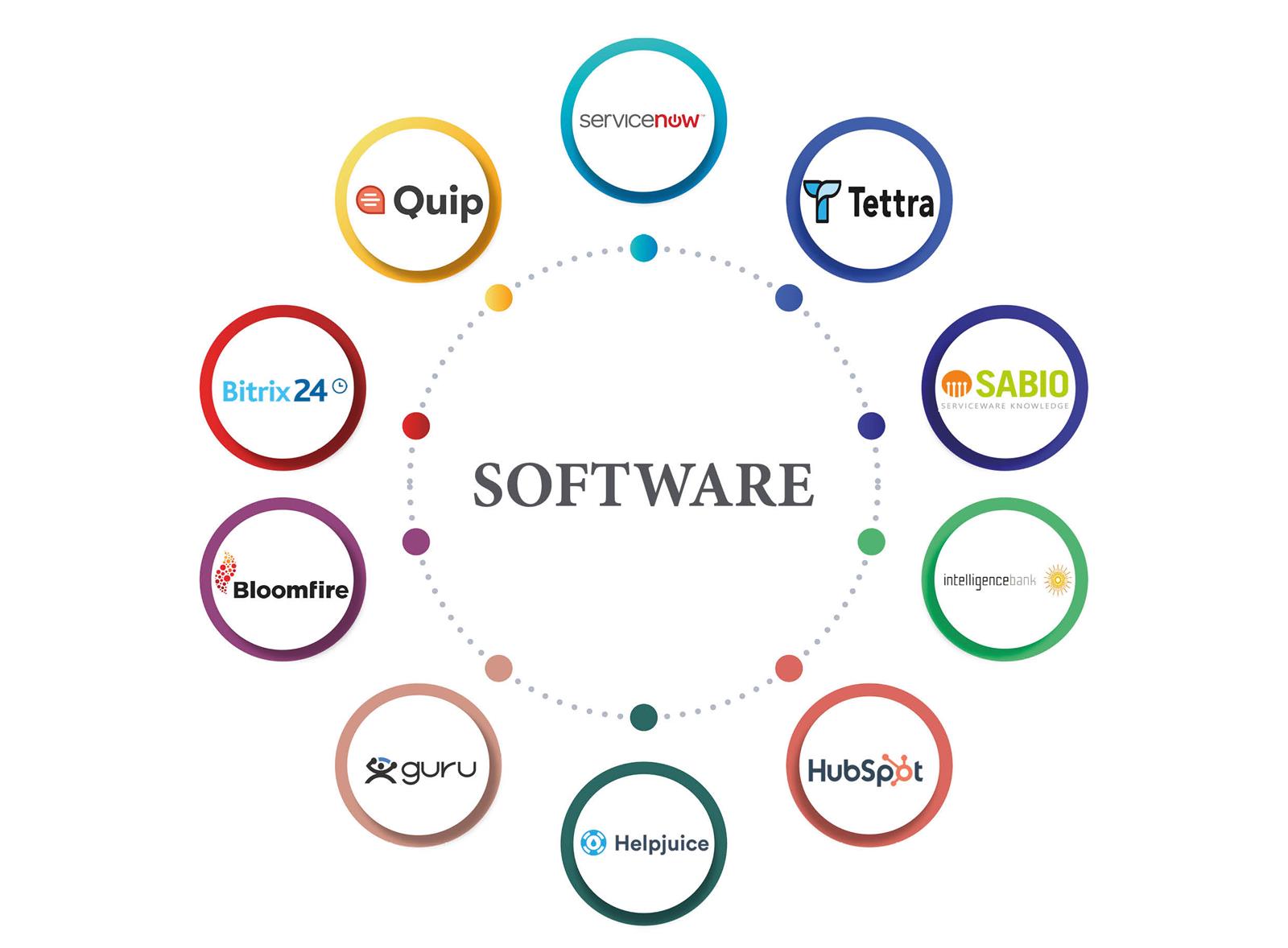A selection of the best international knowledge management software
Learn More
The purpose of knowledge management software is to centralize information in one accessible place. When this happens, both employees and customers can solve problems faster. Employees know where to find essential resources, and customers can use existing solutions to overcome common barriers. When your team offers faster solutions, you can expect increased customer satisfaction. In the following, we will introduce 10 of the top knowledge management software.

IntelligenceBank: IntelligenceBank is a tool that helps the service team align with sales and marketing processes. For example, in addition to the usual features, with sales capability, it assures the sales team that it has the latest customer information. The tool also allows resellers to customize offers to improve the reports required by managers.

The best knowledge management software:
HubSpot
HubSpot is one of the most popular knowledge management tools for users because of its ease of use and customer data storage. You can use the search function to find audience profiles and track all your customer interactions. CRM is integrated with all marketing, sales, and customer service centers of HubSpot and allows changing information in different sections. Besides, HubSpot's ServiceHub allows you to add a knowledge base to your website. This software has a tool to collect customer feedback, and you create new knowledge content based on customer feedback. These features are great for organizations looking to build a knowledge-based support system.Guru
Guru is designed to connect all your company data and offers you the information you need promptly. To achieve this, Guru software uses artificial intelligence techniques, so your team does not even have to search for data during service. With more use of the Guru and the completion of its knowledge bank, the software's performance under the influence of artificial intelligence algorithms will gradually improve.Bitrix 24
Bitrix 24 is a knowledge management platform that includes a variety of tools for collecting and distributing information. The software includes CRM and in-house communication tools that your team uses to participate in problem-solving. Besides knowledge management features, Bitrix 24 provides help dashboards and call centers, which enhance knowledge management software and help the knowledge management team perform all of their customer services through an interface.Sabio
Sabio is designed as a "service ware solution" to obtain the desired results from inputs and information. This system is updated continuously and often creates new and extensive items. One of its most notable tools is the Tree, which allows users to browse related articles in their knowledge base quickly. This tool improves user experiences by aligning content and goals.Quip
Quip is a powerful document storage tool that lets you create and upload new knowledge-based articles. It also allows you to load spreadsheets, slides, customer conversations, and collect file types and store all company data in one place. Quip creates a chat environment for content development through collaboration between your team and prevents misuse of confusing or confusing content.Service Now
ServiceNow provides in-house and out-of-organization knowledge management solutions. In-house knowledge helps IT teams manage and record incoming service requests by storing and registering services in a central database.Bloomfire
Bloomfire is a cloud knowledge management software that encourages employees and customers to be self-sufficient. The tool uses artificial intelligence tags to classify information and make it easier to access widely used data. It also can integrate different applications, and you can connect tools such as Slack, Dropbox, and Google Drive to your central database. This way, upload existing documents to Bloomfire and then turn them into your knowledge base articles.Helpjuice
Helpjuice has unique customization tools that allow you to design all aspects of your knowledge base. In this software, users work together to enter new information and share it as a preview. Due to the ability to record all information in this tool, you can edit your information when an error occurs.Tettra
Tettra is a knowledge management software designed for in-house teams and has a connection line that is easy to use and search. The most important feature is the integration with Slack, allowing users to ask and answer questions through Slack. In this way, employees search for and share answers from the knowledge base without leaving their internal messaging tools.IntelligenceBank: IntelligenceBank is a tool that helps the service team align with sales and marketing processes. For example, in addition to the usual features, with sales capability, it assures the sales team that it has the latest customer information. The tool also allows resellers to customize offers to improve the reports required by managers.

















